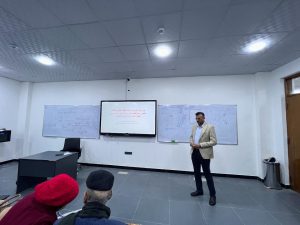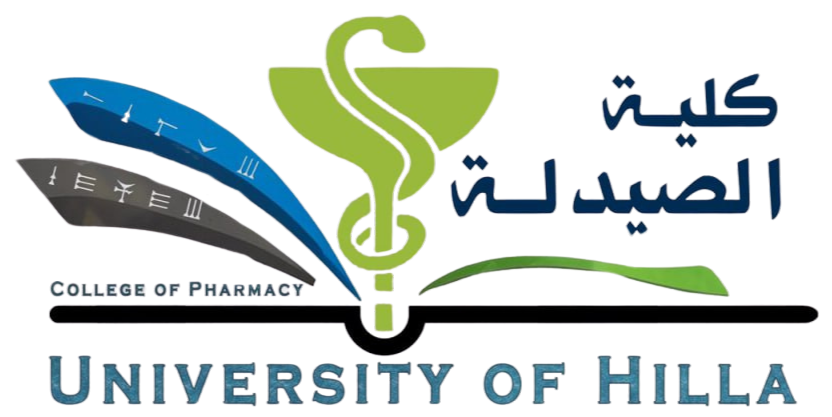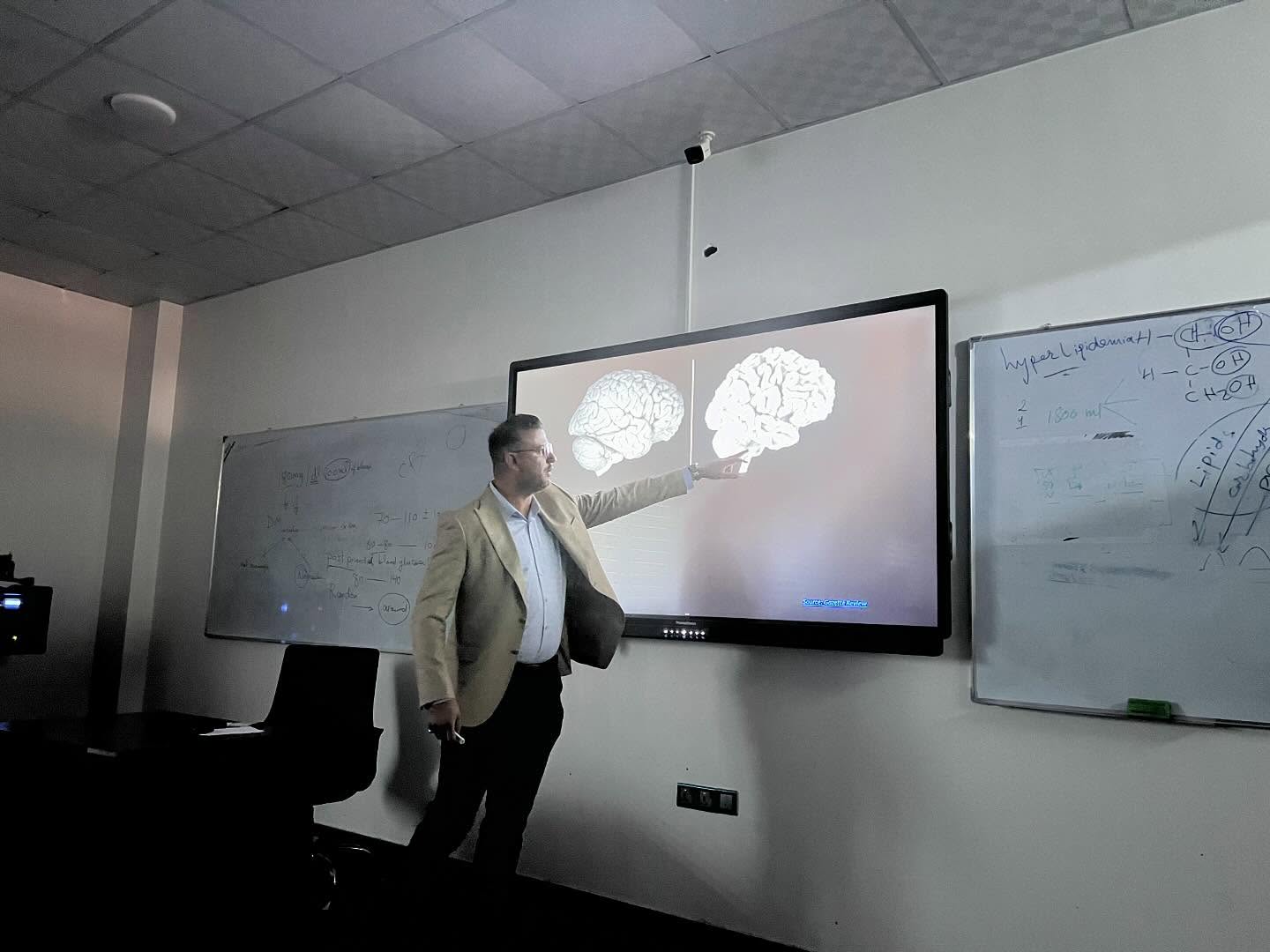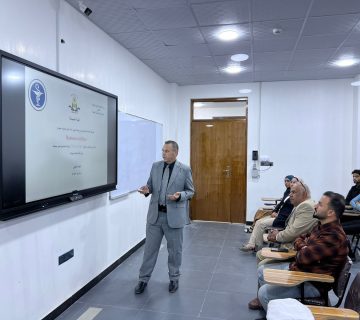The Women’s Affairs Unit at Hilla University, in cooperation with the College of Pharmacy and as part of the college’s continuing education curriculum, held a scientific symposium entitled “How to Prevent Alzheimer’s Disease.” The symposium was delivered by Professor Ahmed Hamid. The symposium, attended by the Dean of the College of Pharmacy and a number of professors from the department, addressed the definition of Alzheimer’s disease, its causes, and the latest theories and preventive methods that help reduce the risk of developing it.
Dr. Ahmed Hamid explained that Alzheimer’s disease is a progressive neurological disorder that leads to a decline in memory and cognitive abilities and is the most common form of dementia. He noted that its causes include the accumulation of abnormal proteins in the brain, such as beta-amyloid and tau, in addition to genetic factors and certain unhealthy lifestyles. He also reviewed recent theories suggesting that Alzheimer’s may be an autoimmune disease, where immune cells attack brain cells, leading to their gradual deterioration. Alzheimer’s Prevention Methods:
The seminar addressed the most important preventive measures that can be followed to maintain brain health and reduce the risk of developing Alzheimer’s, including:
• Eating a healthy diet rich in antioxidants and omega-3 fatty acids.
• Regular physical activity to stimulate blood flow to the brain and improve neurological function.
• Stimulating the mind through reading, solving puzzles, and learning new skills, which helps strengthen neural connections.
• Getting adequate and regular sleep, as deep sleep helps remove toxins that accumulate in the brain.
• Managing stress and avoiding social isolation, as social interaction helps maintain brain health and prevent cognitive decline.
Daily Life Planning and Its Role in Prevention:
At the conclusion of the seminar, the lecturer reviewed some effective tools for organizing daily life, such as schedules and digital applications, which help improve concentration and reduce forgetfulness. He emphasized that periodic lifestyle reviews and ongoing planning are key factors in preventing Alzheimer’s and preserving cognitive functions for a longer period.
Dr. Ahmed Hamid explained that Alzheimer’s disease is a progressive neurological disorder that leads to a decline in memory and cognitive abilities and is the most common form of dementia. He noted that its causes include the accumulation of abnormal proteins in the brain, such as beta-amyloid and tau, in addition to genetic factors and certain unhealthy lifestyles. He also reviewed recent theories suggesting that Alzheimer’s may be an autoimmune disease, where immune cells attack brain cells, leading to their gradual deterioration. Alzheimer’s Prevention Methods:
The seminar addressed the most important preventive measures that can be followed to maintain brain health and reduce the risk of developing Alzheimer’s, including:
• Eating a healthy diet rich in antioxidants and omega-3 fatty acids.
• Regular physical activity to stimulate blood flow to the brain and improve neurological function.
• Stimulating the mind through reading, solving puzzles, and learning new skills, which helps strengthen neural connections.
• Getting adequate and regular sleep, as deep sleep helps remove toxins that accumulate in the brain.
• Managing stress and avoiding social isolation, as social interaction helps maintain brain health and prevent cognitive decline.
Daily Life Planning and Its Role in Prevention:
At the conclusion of the seminar, the lecturer reviewed some effective tools for organizing daily life, such as schedules and digital applications, which help improve concentration and reduce forgetfulness. He emphasized that periodic lifestyle reviews and ongoing planning are key factors in preventing Alzheimer’s and preserving cognitive functions for a longer period.








no comment